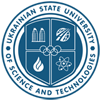Reorienting Library Space and Services of Book Depositories under the Conditions of Martial Law in Ukraine: The Case of the Largest Libraries of Zakarpattia
DOI:
https://doi.org/10.15802/unilib/2022_269933Keywords:
libraries of Ukraine, library services during the war, library activities for temporarily displaced persons, library during hostilities, Scientific Library of Uzhhorod National UniversityAbstract
Objective. The research aims to explore the practical experience of the activity transformation of Ukrainian libraries during the military invasion of the russian federation on the territory of Ukraine. Methods. The analysis of world publications allowed: to attempt identifying the specific methods of library work during extreme events; to conduct an analysis of the services of educational and public libraries; to prove the effectiveness of psychological and moral library support to the population; and to identify its most effective forms. Results. The substantiation of the obtained results is based on the characteristics of the library of the Uzhhorod National University and the Transcarpathian Regional Universal Scientific Library named after F. Potushniak, aimed at supporting victims of war. The most active methods of library work during the first months of the war between russia and Ukraine were revealed. Analysis of the provision of library services confirms the importance of book depositories as an important centre for uniting people for mutual support. The paper outlines practical recommendations regarding the active participation of libraries in the lives of people forced to flee from places of active hostilities. There is a burst of creative library changes associated with the reorientation of the library space and services according to the social challenge posed by russia's military aggression. Conclusions. The ability of the largest library institutions in Zakarpattia to provide moral support to people affected by the war has been revealed. The role of library support as an important factor in practical assistance to people has been confirmed.
References
Bakarŝić, K. (2002). Back where we started: Bosnia’s digital archives. Slavic & East European Information Resources, 3(2-3), 55-79. doi: https://doi.org/10.1300/J167v03n02_07 (in English)
Bangani, S. (2021, Sept.). The fake news wave: Academic librariesְ’ battle against misinformation during COVID-19. The Journal of Academic Librarianship, 47(5), 102390. doi: https://doi.org/10.1016/j.acalib.2021.102390 (in English)
Bladek, M. (2021, May). Student well-being matters: Academic library support for the whole student. The Journal of Academic Librarianship, 47(3), 102349. doi: https://doi.org/10.1016/j.acalib.2021.102349 (in English)
Kolesnykova, T. (2020). Higher education libraries under uncertainty: the specific of the staff’ remote work organizing. Ukrainian Journal on Library and Information Science, 6, 40-61. doi: https://doi.org/10.31866/2616-7654.6.2020.218608 (in Ukrainian)
Kossiakoff, M. (2004). The art of war: the protection of cultural property during the “siege” of Sarajevo (1992–95). DePaul Journal of Art, Technology & Intellectual Property Law, 14(1), 161-163. Retrieved from https://via.library.depaul.edu/jatip/vol14/iss1/5 (in English)
Published
How to Cite
Issue
Section
License
Copyright (c) 2022 M. M. MEDVED

This work is licensed under a Creative Commons Attribution 4.0 International License.







